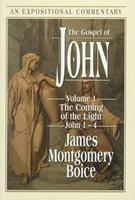But then I'm not writing with that reader in mind. Red meat is simply not on the menu. I'm writing, in fact, with me in mind. I'm getting down to basics, to fundamental things, core things. I simply need to do that for myself, and this blog is the place I do it.
And here's one of those fundamentals: disciples pray. I notice that Jesus emphasized prayer as a remarkably powerful component of the disciple's way of life after he leaves them, and I wonder, have I been that kind of disciple? I mean, there is no way that I can be considered a prayer-warrior. Often I have been downright reluctant to pray, who knows why? Often in prayer my mind wanders, and I certainly don't want to answer for every thought I have occasionally entertained while praying with others.
But here are the words of Jesus, spoken to his eleven remaining disciples on his last night with them, even as Judas was receiving his 30 pieces from the hands of a cabal of bloodthirsty Pharisees:
Truly, truly, I say to you, whoever believes in me will also do the works that I do; and greater works than these will he do, because I am going to the Father. Whatever you ask in my name, this I will do, that the Father may be glorified in the Son. If you ask me anything in my name, I will do it.I wonder, does this passage trouble you just a little? A pastor once explained to me that Jesus was refering here to the church, to the disciples collectively through the centuries. According to this view, it is the church that will do works greater than Jesus did. Not individuals. Are you buying that?
I'm not. Jesus did say "whomever" and the singular pronoun "he" in this statement. And Jesus was speaking to individuals, eleven of them, who could only have understood the Master's words in their plain sense, as a message to each of them.
But notice this: as soon as Jesus speaks of doing greater works than those he had done, a plainly outlandish thought, he quickly connects such doing with prayer. These "greater works" are accomplished, apparently, through prayer. And he says this: we are able to do them because Jesus has gone to the Father.
Just stop and think about that for a moment. Remember, always remember, what "going to the Father" actually meant to Jesus. Jesus knew when he spoke those words that his going to the Father would be by way of the cross. It was a path chosen among the Trinity before time, and by his traveling that path (a path that no one else could travel) we have the access of sons and daughter's to the Father.
Do you get it? We do not pray as servants beseeching an unpredictable master, but as sons and daughters speaking to their loving Father. That is the spirit of sonship (and daughtership, we might as well add). And whatever we ask in the name of Jesus, the Father will do, for by this means he has chosen to demonstrate his glory.
Because Jesus endured the cross, we can pray in confidence for even "greater works" to be done by the Father through our prayers in Jesus' name. Imagine that!

